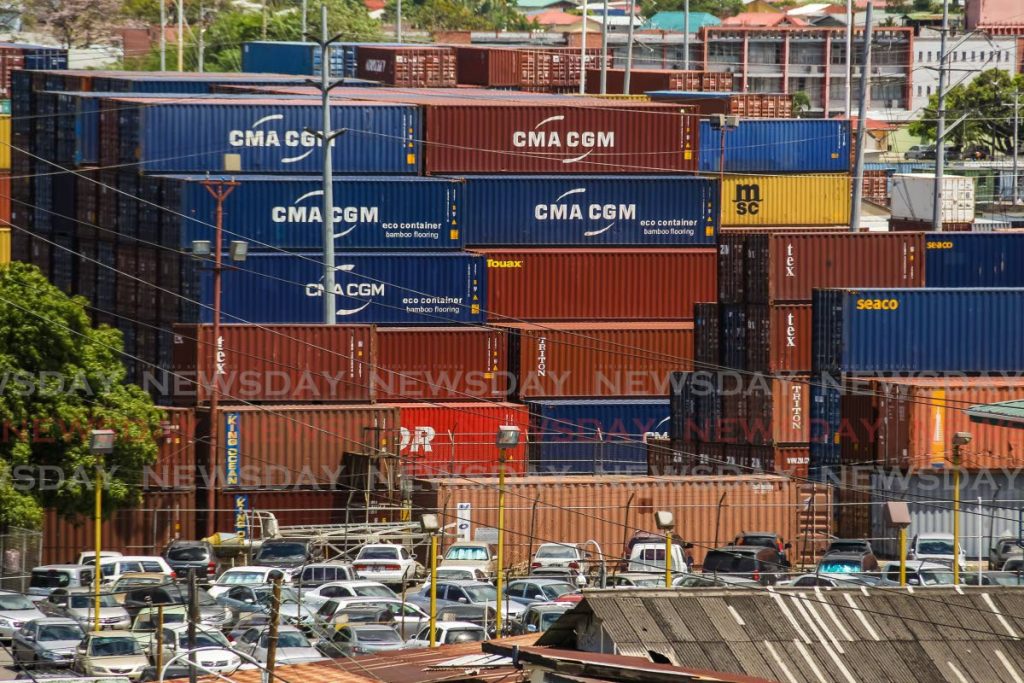Strange apparitions and the Suez Canal

It is Easter Sunday, a day when many Christians believe Jesus Christ rose again from the dead.
For them it is a day of resurrection and renewal while other Christians believe Easter is pagan in origin and shun it. Yet, so much of what we now hold sacred was once pagan and cultish. The Muslims regard Jesus as one of the great prophets, a messiah, though not divine, and they dispute His crucifixion and the Resurrection, so for them Easter goes unremarked too.
In the 1970s I was a student in Egypt. The contrast between a long and quiet Easter weekend here, made even more so by the quasi-lockdown, and the perpetually noisy, teeming masses of Egypt is sharp. Christians, Muslims and Jews lived harmoniously even though the Jewish synagogues by then only had a handful of worshippers to frequent them, all the others having been lured by Zionists or persecuted by fellow Egyptians into heading for Israel, back in the 1940s and 50s. Each of the three religions of the book has a different day of rest: Friday for Muslims, Saturday for Jews and Sunday for Christians, so there were never any quiet days in Egypt.
Memories of that extraordinary country floated back last weekend, provoked by shocking images of a massive 224,000-tonne container ship, the size of the Empire State building on its side, stuck diagonally across the Suez Canal, one of the world’s busiest waterways. On top of that, news came of the train crash between Cairo and Alexandria that killed over 30 people. I travelled often between both cities by train.
My first sighting of the Suez Canal happened during an Easter weekend road trip with a friend.
What we saw was not the Canal itself but a tall ship gliding through the desert behind a bank of low sand dunes. We gaped at the advancing mirage. We parked and peeped over the dunes.
A wide strip of dazzlingly blue water cleaved the yellow desert into two. The ship moved past us, only the sound of its engines disturbing the cushioned silence of the vast golden expanse of dust. There were no other people, not even on the ship, and no other traffic, neither on the road or on the Canal.

Such an experience is probably impossible today. The Suez Canal has been deepened and widened and the traffic has multiplied several fold to handle approximately 10-12 per cent of current international maritime trade. It is one of Egypt’s most important sources of national revenue, providing an estimated US$14 million daily from the average 50 ships that enter the Canal to move through its 193 kms. The Canal offers the shortest distance between the Atlantic and Indian Oceans, a journey which otherwise would have to be around the southern tip of Africa and take twice as long. The vessels carry oil from the Gulf states to Europe and the western world and food and supplies of all sorts from India and the Far East. In the opposite direction, their cargoes comprise mainly manufactured goods and cereals from North America and Europe.
Over 300 ships were stuck last weekend on either side of the blockage. It rose to over 400 by Monday. The Egyptian government gulped hard and dredged the Canal, eventually refloating the vessel, but it is a huge financial setback for the country with severely crumbling infrastructure – hence the hundreds of train crashes yearly, with a tourism deficit because of insurgent attacks upon visitors, and a fight with Sudan in the south over the damming up of the Nile, which threatens Egypt's very existence. Egypt was banking on steady Canal profits to keep it afloat, so the blockage was a big, immediate blow, yet its effects could cast a longer shadow over the future.
That unimaginable incident in the Canal interrupted the passage of roughly US$9.6 billion of goods each day at a cost to world trade of US$400 million per hour, over seven days.
Businesses everywhere are hurting as they strive to recover from the covid shock, and food supply chains which were only just beginning to recover from the worst of the pandemic disruption have been put into a tailspin. The insurance claims, the cost of customers and balance sheets is inestimable at this point.
We rely too heavily on the quick movement of food and goods and we are seeing the result during the pandemic, with global shortages of essential items that come from the other end of the world. Moreover, like the pandemic, trade now exceeds the human scale. Shipping containers have revolutionised world trade and shortened the food and supply chain but the number of them packed onto vessels – 18,300 on the beached ship – apparently increased 1,500 per cent over the last 50 years and doubled in the last decade alone, probably in response to the enlargement of the Suez and Panama canals. It would be unsurprising if there were a global rethink of the 200,000-tonne container vessel, with all that it signifies for Egypt and the rest of us.


Comments
"Strange apparitions and the Suez Canal"